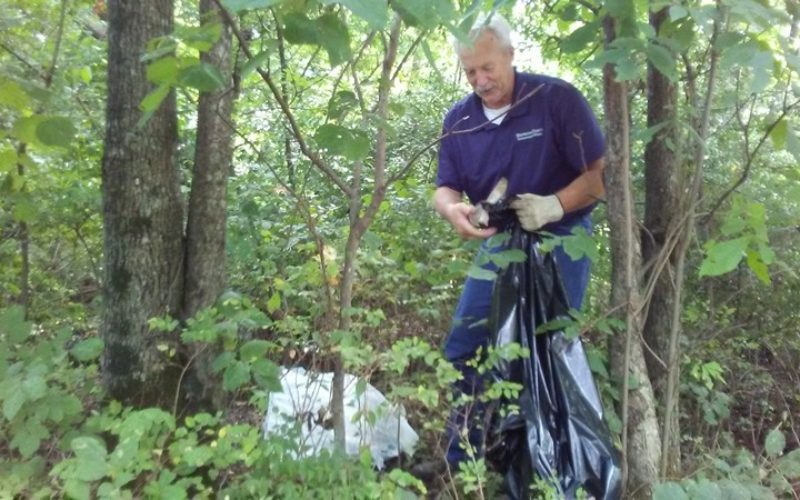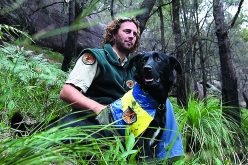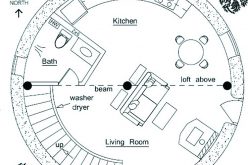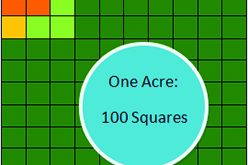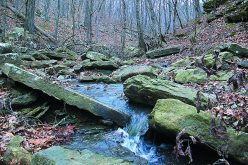Illegal dumps the battleground for environmental officer
AMANDA BANCROFT
Making Ripples
Summer is a prime season for illegal dumping. Not everyone understands (or cares) about the dangers to human health and environmental damage done by tossing trash out car windows or leaving furniture and bags of garbage along rural roads and streams. Lucky for us, Washington County and other entities in the region frequently collect and clean up illegal dump sites, including hazardous waste. Local heroes go forth into the rural areas of the county, sometimes at great personal risk, to clean up after offenders.
Andrew Coleman, environmental enforcement officer for Washington County, is one such superhero. He scrambles up roadside banks and into the woods to clean up trash left behind by ignorant or thoughtless residents. On Aug. 7, a recent rain made the bank slippery, but this didn’t stop Coleman. “This part gets tricky,” he said, as he grabbed a young tree for support. He’s cleaned up all sorts of disgusting and even dangerous debris left by dumpers and drug addicts. Examples include mattresses, appliances, couches, syringes, full trash bags and a sewage receptacle. The job entails exposure to ticks and chiggers (tiggers and chicks, he jokingly calls them) and he once developed Lyme disease from a bad tick bite. Fortunately, he caught the bite in time and was treated with antibiotics. He’s also responsible for cleaning up illegal burns, when people set fire to materials that pollute the air or endanger human health.
According to the county’s website, illegal dumps are a problem for everyone because they decrease property values, are ugly and smelly, attract pests which carry diseases, pollute soil and drinking water sources, cost money to clean up and are dangerous for children who might play in them. Once dumping begins at a site, it’s like a magnet for more dumping at that same site. Other people see trash and add their own trash, which happens in urban as well as rural areas and not just at illegal large dumping grounds.
There are safer alternatives to dumping, like taking the items to a landfill (for directions to the Washington County landfill near Tontitown, call 479-361-2069). Donate items to charities of your choice if they are still in good condition. You might schedule a bulky waste pick-up, including furniture to be picked up at your mailbox (for a fee), by calling 479-846-3005. Call 888-426-9278 if you’d like to hire a licensed trash hauling service in your area. Recycling is strongly encouraged, and even if you have appliances, tires, scrap metal, hazardous waste or electronics, they are accepted at a collection location in Fayetteville. And don’t forget that first R in Reduce, Reuse, Recycle. Reducing our consumption of items bound for the landfill greatly helps!
If you find a dump or trash accumulation within a city, call the relevant city administrative office. But if you find one along a county road, just call Andrew Coleman at 479-444-1725. It’s free to call, and there is no charge for cleanup. If you’re driving along Arkansas state highways and see littering, report the date, location, items littered and vehicle description to Keep Arkansas Beautiful’s toll-free hotline: 866-811-1222. We may not stop everyone from dumping, but we can limit the harm that a few may do by reporting it. They need volunteer cleanup crews, too, and supply the materials as well as offer periodic training. Call their office for more information.
Amanda Bancroft is a writer, artist, and naturalist living in an off-grid tiny house on Kessler Mountain. She and her husband Ryan blog about their adventures and offer tips to those wanting to make a difference at www.MakeRipples.org.

